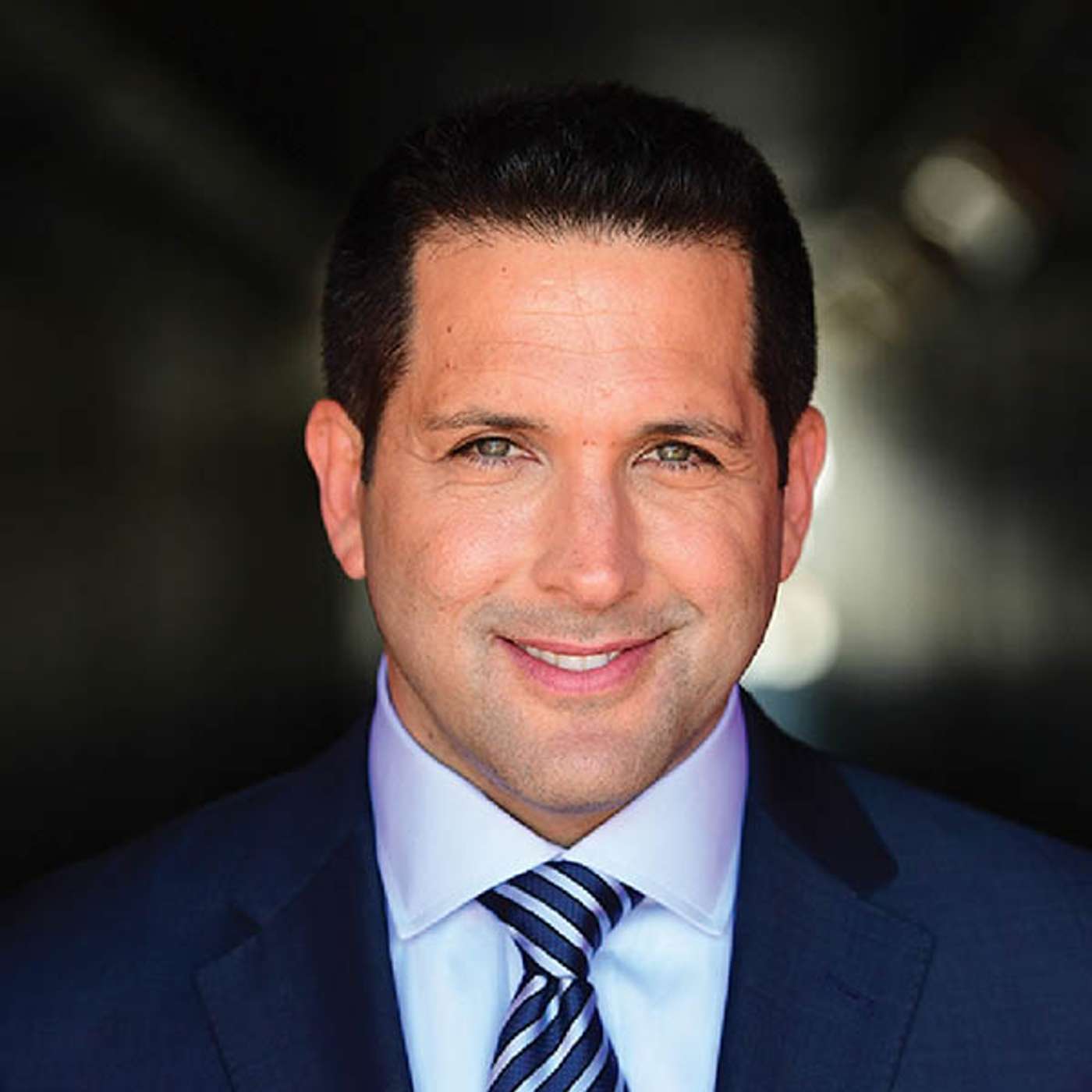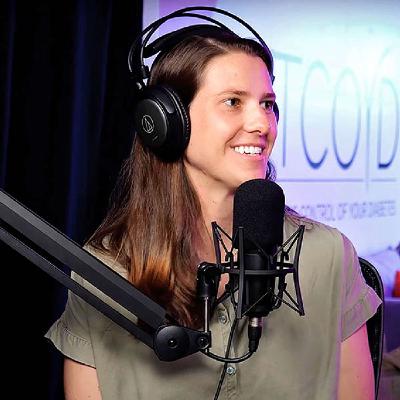Discover Taking Control Of Your Diabetes® - The Podcast!
Taking Control Of Your Diabetes® - The Podcast!

Taking Control Of Your Diabetes® - The Podcast!
Author: Taking Control Of Your Diabetes®
Subscribed: 85Played: 1,163Subscribe
Share
© Taking Control Of Your Diabetes®
Description
Welcome to Taking Control Of Your Diabetes® - The Podcast, an edutaining show all about highs and lows of living with diabetes. Hosted by Dr. Steve Edelman and Dr. Jeremy Pettus, both endocrinologists who have been living with diabetes themselves since they were 15, we’re discussing the important topics that people living with diabetes need to know—and no topic is off-limits.
From the latest advancements in diabetes medications and devices, to interviews with some of the best minds in diabetes, to personal stories about the ups and downs of dealing with this condition 24/7, we’re tackling what it means to live with diabetes in modern times. And we promise to make you laugh along the way, because sometimes we just need to laugh at the craziness that comes with living with diabetes.
Tune in for a new episode on the last Monday of every month! Like what you hear and want to help us grow? Please rate and review this podcast so we can reach more people living with diabetes!
VISIT: tcoyd.org | FOLLOW: tcoyd.org/contact | EMAIL: podcast@tcoyd.org
APPLE PODCAST RATING: 4.9/🌟🌟🌟🌟🌟
From the latest advancements in diabetes medications and devices, to interviews with some of the best minds in diabetes, to personal stories about the ups and downs of dealing with this condition 24/7, we’re tackling what it means to live with diabetes in modern times. And we promise to make you laugh along the way, because sometimes we just need to laugh at the craziness that comes with living with diabetes.
Tune in for a new episode on the last Monday of every month! Like what you hear and want to help us grow? Please rate and review this podcast so we can reach more people living with diabetes!
VISIT: tcoyd.org | FOLLOW: tcoyd.org/contact | EMAIL: podcast@tcoyd.org
APPLE PODCAST RATING: 4.9/🌟🌟🌟🌟🌟
88 Episodes
Reverse
Get a practical breakdown of Afrezza, the ultra-rapid inhaled insulin, with this comprehensive guide to efficacy, timing, and real-world application. Join Drs. Jeremy Pettus and Steve Edelman—endocrinologists living with Type 1 diabetes—as they reveal why this unique tool is often misunderstood and how to use it effectively to flatten post-meal spikes.In this episode, we move beyond the basics to correct the biggest mistake users make regarding Afrezza dosage. If you’ve tried this therapy before and felt it "didn't work," the issue often lies in the conversion ratio. We review data from Afrezza MannKind studies (such as INHALE-3) to explain the shift from the old 1:1 ratio to the more effective 1:3 ratio. We also cover why this "rapid-on, rapid-off" insulin is the ultimate solution for exercise and how to navigate insurance coverage and prior authorizations.Topics covered in this episode:The Dosing Fix: Why you often need a higher Afrezza dosage compared to subcutaneous insulin.Speed & Kinetics: How inhaled insulin mimics the body's natural beta cells to clear glucose fast.Lifestyle Benefits: Managing "sticky highs," exercise without crashing, and dietary freedom.Safety & Screening: Spirometry requirements and who should (and shouldn't) use Afrezza.Pediatric Updates: The latest on clinical trials and potential approval for children.Whether you are managing Type 1 or Type 2 diabetes, this episode provides the practical "tips and tricks" you need to determine if Afrezza is the missing tool in your diabetes management kitTimecodes: 0:00 Intro: Inhaled Insulin History 0:59 How Fast is Afrezza? (Rapid On/Rapid Off) 2:19 Why It Prevents "Delayed Lows" 3:24 The Big Mistake: Why Dr. Pettis Quit Using It 5:20 The Correct Dosing Conversion (1:1 vs 1:3) 7:40 Timing: Do You Need to Pre-Bolus? 8:44 "Follow-On" Dosing for High Protein/Fat Meals 10:32 Cartridge Sizes & "Bucket" Dosing 12:11 Using Inhaled Insulin for Exercise 13:58 Real-World Test: Trix Cereal & Afrezza 15:00 Storage Tips: Fridge vs. Room Temp 16:20 Dealing with the Cough Side Effect 17:05 Proper Inhalation Technique 19:13 Using Afrezza with Insulin Pumps & Closed Loops 21:30 Pediatric Update: Is it Safe for Kids? 23:25 Lung Safety, Smokers & Spirometry Tests 24:25 How to Talk to Your Doctor About Afrezza 26:32 Prescriptions & Trainers 28:44 ConclusionVisit TCOYD's Website for more diabetes edutainment for people living with diabetes: tcoyd.org**Tune in for two new episodes each month! Like what you hear and want to help us grow? Please rate and review this podcast so we can reach more people living with diabetes!**Follow our social media channels to empower yourself with the essential areas of diabetes knowledge led by two endocrinologists living with type 1 diabetes: Facebook | Instagram | YouTube
★ Support this podcast ★
Type 1 diabetes doesn’t always travel alone — in fact, it often brings other autoimmune conditions along for the ride. In this episode, Dr. Jeremy Pettus and Dr. Steve Edelman shine a light on the most common ones that tend to show up with T1D, why they happen in the first place, when you should be screened, and what subtle symptoms should raise a red flag.They walk through what’s common but manageable, like thyroid issues and celiac disease — as well as what’s rare but critical not to miss, like Addison’s disease (adrenal failure), which can be dangerous if left undiagnosed but incredibly treatable once caught early.Most importantly, Jeremy and Steve explain how simple blood tests can catch these conditions before they spiral, and how the right medication can completely change how you feel day-to-day.Key Topics:• T1D & Autoimmunity 101: Why having one autoimmune condition raises your risk for others• Thyroid Disorders: The most common — hyper vs. hypo, yearly screening, easy treatment• Celiac Disease: Why it’s up to 10x more common in T1D and often missed without symptoms• Addison’s Disease Awareness: The “silent” cortisol deficiency you don’t want to miss• Proactive Care Mindset: How to build autoimmune screening into your diabetes warranty plan(00:00) Intro: The "Raindrop" Analogy (02:26) Thyroid Disease: The Most Common T1D Link (05:25) Hypothyroidism (Low Thyroid): Symptoms & Easy Treatment (09:30) Hyperthyroidism (Graves' Disease): Symptoms & Cures (13:25) Your "Diabetes Warranty": Why You Need a Yearly TSH (14:48) Celiac Disease: The 10% Risk Factor (19:28) Celiac Screening vs. "Gluten Sensitivity" (25:31) Addison's Disease: The Other One to Know (29:43) Final Takeaway: Be Your Own AdvocateVisit TCOYD's Website for more diabetes edutainment for people living with diabetes: tcoyd.org**Tune in for two new episodes each month! Like what you hear and want to help us grow? Please rate and review this podcast so we can reach more people living with diabetes!**Follow our social media channels to empower yourself with the essential areas of diabetes knowledge led by two endocrinologists living with type 1 diabetes: Facebook | Instagram | YouTube
★ Support this podcast ★
Gene therapy isn’t science fiction anymore, it’s becoming one of the most exciting frontiers in diabetes care. In this episode, Dr. Jeremy Pettus and Dr. Steve Edelman sit down with Dr. Fraser Wright, career gene therapist and Co-Founder/Chief Gene Therapy Officer at Kriya Therapeutics, to explore how gene therapy could one day help the body make its own insulin.Together, they unpack what gene therapy actually is, Dr. P’s involvement as a medical consultant for Kriya Therapeutics, how AAV (adeno-associated virus) vectors work, and what makes this “one-and-done” approach so different from traditional treatments. From success stories in blindness and hemophilia to emerging type 1 diabetes studies, the trio breaks down the science, the safety, and the hope behind this revolutionary research.You’ll learn how gene therapy has moved from rare diseases to more common ones, why the first human trials in diabetes are on the horizon, and what and what this could mean for long-term blood sugar control and independence from injections.Key Topics:Gene Therapy 101: How gene therapy differs from protein-based drugs like insulin, and why AAV vectors act as safe, engineered delivery vehicles rather than infectious viruses.Why AAV, Why Now: Seven FDA-approved AAV-based therapies have proven the potential of long-term, single-dose treatments.From Eyes to Endocrine: Lessons learned from retinal gene therapy are now guiding approaches to metabolic conditions like diabetes.The Type 1 Diabetes Approach: A muscle-targeted program aims to help the body naturally produce insulin and stabilize blood sugar levels.Control and Safety: Built-in glucose sensing and the ability to turn off gene expression ensure precision and reversibility.Real-World Considerations: How exercise, treatment site, and existing technologies like pumps or CGMs could work alongside this therapy.0:00 – Intro: Jeremy and Steve introduce gene therapy and why this topic is a game-changer2:15 – What gene therapy is and how it’s different from standard protein-based treatments4:54 – Understanding AAV: safety, engineering, and why it’s the preferred delivery method8:50 – Real-world success: seven FDA-approved AAV therapies for genetic diseases12:20 – Lessons learned from treating blindness and how they apply to diabetes17:40 – The Type 1 Diabetes model: using muscle tissue to produce insulin22:15 – Managing control, glucose sensing, and preventing hypoglycemia25:50 – Safety measures and how treatment can be reversed locally if needed28:30 – Exercise, durability, and what animal studies reveal about real-life performance31:10 – Timelines, trials, and what’s next for gene therapy in diabetes. What’s Ahead: Clinical trials expected to begin around 2026, offering cautious but real optimism for the future of diabetes treatment.Visit TCOYD's Website for more diabetes edutainment for people living with diabetes: tcoyd.org**Tune in for two new episodes each month! Like what you hear and want to help us grow? Please rate and review this podcast so we can reach more people living with diabetes!**Follow our social media channels to empower yourself with the essential areas of diabetes knowledge led by two endocrinologists living with type 1 diabetes: Facebook | Instagram | YouTube
★ Support this podcast ★
The diagnosis of Cushing's Syndrome is often missed because its underlying cause, hypercortisolism, masks itself as 'just diabetes,' 'just stress,' or 'just getting older,' which can lead to serious problems. In this conversation, Dr. Steve Edelman talks with a military veteran named Phil and his wife Cherese about years of unexplained fatigue, tough-to-control blood sugars, and high blood pressure, and the one test that made everything make sense. This episode discusses the early warning signs, how to advocate for answers and the hypercortisolism treatments that helped Phil feel like himself again. You’ll also hear why targeted hypercortisolism treatments and diabetes-specific approvals are on their way.You’ll learn why hypercortisolism is more common than most people realize, how it can hide behind type 2 diabetes, and what tests and treatments can make a life-changing difference.Why hypercortisolism is so often overlooked: Symptoms overlap with diabetes, stress, and other common health issues.Phil’s story of resilience: From managing diabetes with multiple medications to discovering hypercortisolism as the root cause.The partner’s perspective: How Cherese noticed the warning signs and pushed for further testing.The Catalyst Study: Why research shows up to 1 in 4 people with hard-to-control type 2 diabetes may have hypercortisolism.Diagnosis explained: The 1 mg overnight dexamethasone suppression test and why it matters.Treatment and transformation: How targeted therapies improved Phil’s blood sugars, energy, sleep, and overall quality of life.Key takeaways: Be your own best advocate—if your numbers don’t add up, it’s worth asking why.Timecodes: 0:00 – What is Cushing's Syndrome (hypercortisolism) & guest setup0:41 – Steroids & cortisol 101: why persistently high cortisol wreaks havoc2:01 – Phil’s backstory: diabetes diagnosis and years of “uncontrolled” numbers4:55 – Escalating meds, rising A1C, growing fatigue—when things stop making sense7:25 – Cherese’s Story: lifestyle overhaul, then deeper testing when sugars don’t improve10:47 – Classic signs of Cushing's Syndrome (buffalo hump, thin arms) & sleep issues11:23 – CATALYST study: up to 1 in 4 with tough-to-control T2D show evidence of hypercortisolism13:10 – Diagnosing Cushing's: The hypercortisolism suppression test16:06 – Treatment wins: targeted therapy improves glucose, mood, sleep; “new era” in care20:45 – Takeaways: Recognizing Cushing's, self-advocacy & red flagsImportant Links:Cortisol in Control website: https://www.cortisolincontrol.com/ https://www.cortisolmatters.com/patientVisit TCOYD's Website for more diabetes edutainment for people living with diabetes: tcoyd.org**Tune in for two new episodes each month! Like what you hear and want to help us grow? Please rate and review this podcast so we can reach more people living with diabetes!**Follow our social media channels to empower yourself with the essential areas of diabetes knowledge led by two endocrinologists living with type 1 diabetes: Facebook | Instagram | YouTube
★ Support this podcast ★
Type 2 diabetes is one of the most common chronic conditions in the U.S., but it doesn’t have to define or limit your life. In this episode, Dr. Steve Edelman and Dr. Jeremy Pettus—two endocrinologists with decades of experience—break down practical strategies for living well with type 2. From the latest medications and tools to everyday lifestyle choices, they highlight what really makes a difference in the long run. Their goal? To show you that type 2 diabetes is not only manageable but that taking control can actually improve your health and quality of life.Get Educated About What’s Happening in Your Body: Understanding insulin resistance, metabolic syndrome, and why type 2 diabetes is more than just “high blood sugar.”Know Your Numbers: The key benchmarks for A1c, blood sugar, cholesterol, and blood pressure—and why even small improvements matter.Build the Right Care Team: How to find and work with providers who can guide you through treatment options and keep you on track.Food and Drink That Work for You: Why portion control, balance, and smart substitutions matter more than strict diets or deprivation.Move Your Body (Without Overthinking Exercise): How realistic activity goals—walking, stretching, or even gardening—can improve insulin sensitivity and overall health.The Medications Changing the Game: Why GLP-1s, SGLT2 inhibitors, and CGMs are considered life-changing tools in type 2 diabetes care—and what you should know about them.And That’s Just the Start…: From mental health to long-term complication prevention, there are even more strategies in this episode to help you thrive with type 2 diabetes.
★ Support this podcast ★
Living with type 1 diabetes is a daily grind, full of numbers, decisions, and constant adjustments, but it doesn’t have to feel overwhelming. In this episode, Dr. Steve Edelman and Dr. Jeremy Pettus two endocrinologists who also live with T1D, share their top 10 tips for making life with diabetes more manageable and a little easier to navigate. They cover everything from setting realistic blood sugar goals and understanding the metrics that matter most, to smart supply hacks that can save you stress when you least expect it. They also dive into why celebrating the small wins like getting through the night without a low or nailing your pre-meal insulin timing can make a big difference in your long-term mindset. Whether you’re newly diagnosed or decades into the journey, this episode is packed with advice you can use today and into the future.Key Topics:Perfection Isn’t the Goal: Why aiming for progress—and not flawless numbers—keeps you healthier and less stressed.Know the Benchmarks That Matter: A1C, time in range, and minimizing hypoglycemia are key to long-term health.Celebrate the Small Wins: Even the little victories count, and they help build momentum in the day-to-day grind.Be Prepared With Backups: Why extra insulin, CGMs, and supplies are non-negotiable.Don’t Forget the “Non-Blood Sugar Stuff”: Eye exams, blood pressure, and cholesterol deserve just as much attention.And There’s More… From food strategies to mental health hacks, this episode is packed with practical advice you won’t want to miss—tune in for all 10 tips!Visit TCOYD's Website for more diabetes edutainment for people living with diabetes: tcoyd.org**Tune in for two new episodes each month! Like what you hear and want to help us grow? Please rate and review this podcast so we can reach more people living with diabetes!**Follow our social media channels to empower yourself with the essential areas of diabetes knowledge led by two endocrinologists living with type 1 diabetes: Facebook | Instagram | YouTube
★ Support this podcast ★
Think sleep apnea is just about loud snoring? Think again. This common condition is a serious health issue that affects a staggering number of people with both type 1 and type 2 diabetes. In this eye-opening episode, Dr. Steve Edelman is joined by Dr. Jeremy Pettus, who shares his own recent and unexpected diagnosis of obstructive sleep apnea. From recognizing the subtle symptoms to navigating the diagnosis process and starting treatment, Dr. Pettus offers a firsthand account of what it's like to confront this underdiagnosed condition. This episode is a crucial wake-up call, revealing how untreated sleep apnea can impact everything from your heart health and blood pressure to your energy levels and insulin resistance. Whether you or a loved one has diabetes, this is essential listening.Key Topics:What is Sleep Apnea? An explanation of how the airway collapses during sleep, leading to a drop in oxygen levels and triggering a "fight-or-flight" response throughout the night.Symptoms to Watch For: A breakdown of the classic signs, including loud snoring and gasping for air, as well as less obvious daytime symptoms like excessive fatigue, morning headaches, and low libido.Who Is at Risk?: A look at the surprisingly high prevalence of sleep apnea, especially among people with diabetes, affecting up to 80% of those with type 2 and half of those with type 1.Key Risk Factors: A guide to the factors that increase your chances of developing sleep apnea, such as weight, neck size, age, gender, and lifestyle habits like alcohol consumption.Getting Tested: An overview of the diagnostic process, from the simple STOP-BANG screening questionnaire to the modern convenience of home sleep tests.Effective Treatment Options: A comprehensive look at treatments that can improve your health, including lifestyle changes, CPAP therapy, and the new FDA-approved use of weight-loss medications like Zepbound for sleep apnea.Visit TCOYD's Website for more diabetes edutainment for people living with diabetes: tcoyd.org**Tune in for two new episodes each month! Like what you hear and want to help us grow? Please rate and review this podcast so we can reach more people living with diabetes!**Follow our social media channels to empower yourself with the essential areas of diabetes knowledge led by two endocrinologists living with type 1 diabetes: Facebook | Instagram | YouTube
★ Support this podcast ★
What if you could learn about type 1 diabetes before symptoms even appear? In this powerful episode, Dr. Steve Edelman and Dr. Jeremy Pettus sit down with Senior Football Insider and Sanofi Spokesperson Adam Schefter to talk about why early screening for T1D is a conversation every family should be having.Adam shares his personal connection to type 1 diabetes through his wife’s experience and how it changed his outlook on health, preparation, and the role of care partners. Together, they break down the importance of understanding early-stage T1D, how screening works, and why early knowledge is more than just information—it’s peace of mind.Whether you’re newly diagnosed, a care partner, or simply looking to stay informed, this episode offers insight, support, and a meaningful call to action.Key Topics:Adam’s connection to T1D: How his wife’s diagnosis impacted their family and sparked his passion for awareness and advocacy.Why early screening matters: The power of knowing about type 1 diabetes before symptoms begin—and how it can change everything.Understanding early-stage T1D: What auto antibodies are, what they indicate, and how type 1 develops in stages.Advice for care partners and families: Why loved ones should consider screening too, and how to start the conversation with a healthcare provider.Awareness is everything: How misinformation and lack of understanding can delay diagnosis—and why it's time to change that.Start the conversation: How to learn more about screening and what families can do today to stay one step ahead.Visit TCOYD's Website for more diabetes edutainment for people living with diabetes: tcoyd.org**Tune in for two new episodes each month! Like what you hear and want to help us grow? Please rate and review this podcast so we can reach more people living with diabetes!**Follow our social media channels to empower yourself with the essential areas of diabetes knowledge led by two endocrinologists living with type 1 diabetes: Facebook | Instagram | YouTube
★ Support this podcast ★
Managing type 1 diabetes while balancing college sports, academics, and everyday life is no small feat. In this episode, Dr. Jeremy Pettus and Dr. Steve Edelman sit down with two remarkable Dexcom U athletes—baseball pitcher Leo and soccer/track star Amber—to talk about how they're thriving with T1D on and off the field. From diagnosis stories to game-day strategies, device hacks, and mentoring others with diabetes, Leo and Amber open up about what it really takes to perform at a high level while managing their diabetes as well as being a part of Dexcom U. Whether you're a student-athlete, a parent, or just looking for inspiration, this episode is a powerful reminder that diabetes doesn’t have to hold you back.Key Topics:Introducing Dexcom U: What it is, how it empowers college athletes with diabetes, and why representation matters.Meet Leo and Amber: Their personal diagnosis journeys, sports backgrounds, and paths to Dexcom U.Navigating sports with T1D: How Leo and Amber manage blood sugars during intense practices, games, and competition.From burnout to balance: Amber shares her emotional journey through diabetes burnout and finding motivation through community.Coaches, teammates & T1D: How athletes talk about diabetes with their teams, and why open communication can be powerful (and sometimes scary).Facing fear of judgment: The pressure to “power through” highs and lows—and when it's okay to speak up.Mentorship and community: How Dexcom U helps athletes with T1D connect Changing the narrative: Why T1D can actually lead to healthier habits, more mindful living, and even longer lives.Real Perspective: Personal advice from Leo and Amber for young athletes, college students, and anyone newly diagnosed.Visit TCOYD's Website for more diabetes edutainment for people living with diabetes: tcoyd.org**Tune in for two new episodes each month! Like what you hear and want to help us grow? Please rate and review this podcast so we can reach more people living with diabetes!**Follow our social media channels to empower yourself with the essential areas of diabetes knowledge led by two endocrinologists living with type 1 diabetes: Facebook | Instagram | YouTube
★ Support this podcast ★
Conversations about diabetes and health can be awkward—especially when you're a teenager trying to figure it all out. In this episode, Dr. Steve Edelman welcomes diabetes influencer Mary Comeau and pediatric endocrinologist Dr. Manasi Jaiman to break down the real issues young people with type 1 diabetes face when navigating adolescence, independence, and taboo topics like sex, alcohol, marijuana, driving, and overbearing parents. With personal stories, practical advice, and some laughs along the way, this episode is all about helping young adults with T1D build confidence, advocate for themselves, and feel less alone.Key Topics:Mary’s teenage experience with T1D and the emotional rollercoaster of acting like it “wasn’t there.”Why teens with diabetes often feel disconnected from their doctors—and how to find one who understands.The challenge of transitioning from pediatric to adult care and why many clinics still don’t get it right.How to navigate tension with parents—especially when they micromanage diabetes care.Starting conversations about sex and diabetes: why it matters and how to get the right support.Dating with diabetes: real-life stories, embarrassing moments, and how to educate your partner.Alcohol, blood sugar, and good decisions: what to drink, what to avoid, and how to stay safe.Weed and diabetes: effects of marijuana (and the munchies), tips for safer use, and what to watch for.Driving with diabetes: why planning matters and how to prepare a “driving diabetes kit.”How Mary built a massive online community by being open about her diabetes—and why connecting with others can change everything.See a whole video series dedicated for teens with Mary and Dr. Manasi Jaiman: tcoyd.org/video-teens-young-adults-type-1-diabetes/Follow Mary: instagram.com/mary_comeauVisit TCOYD's Website for more diabetes edutainment for people living with diabetes: tcoyd.org**Tune in for two new episodes each month! Like what you hear and want to help us grow? Please rate and review this podcast so we can reach more people living with diabetes!**Follow our social media channels to empower yourself with the essential areas of diabetes knowledge led by two endocrinologists living with type 1 diabetes: Facebook | Instagram | YouTube
★ Support this podcast ★
People living with diabetes often focus on managing blood sugars, medications, and diet — but skin health is an equally important and often overlooked part of the picture. In this episode, Dr. Steve Edelman sits down with Dr. Tanya Nino, a board-certified dermatologist, to explore the skin conditions commonly seen in people with diabetes. From everyday concerns like dry, itchy skin to more serious fungal infections and rare complications like necrobiosis lipoidica, Dr. Nino offers clear explanations, helpful tips, and guidance on when to seek medical care. This episode is packed with practical advice to help people living with diabetes better protect and care for their skin.Key Topics:Dry skin in people with diabetes often results from impaired barrier function and poor circulation, increasing the risk of cracks, infection, and delayed healing.Yeast infections in skin folds are more common when high blood sugar and trapped moisture allow Candida to thrive, particularly under the breasts, groin, or abdomen.Fungal infections like athlete’s foot and nail fungus are harder to treat in diabetes and can lead to serious foot complications if not managed early.Chronic itching and the itch-scratch cycle are common with dry diabetic skin and can worsen inflammation and skin damage without proper care.Dark skin patches (acanthosis nigricans) may signal insulin resistance and are often seen on the neck or underarms in people with type 2 diabetes.Shin spots (diabetic dermopathy) are harmless but visible signs of microvascular damage from long-term diabetes, often triggered by minor trauma.Skin tags in high-friction areas are linked to insulin resistance and may be an early physical marker of metabolic syndrome or type 2 diabetes.Necrobiosis lipoidica, a rare condition in type 1 diabetes, causes fragile reddish plaques on the shins that can ulcerate and require dermatologic care.Skin care for people with diabetes is essential to prevent infections, detect warning signs early, and protect overall health.Visit TCOYD's Website for more diabetes edutainment for people living with diabetes: tcoyd.org**Tune in for two new episodes each month! Like what you hear and want to help us grow? Please rate and review this podcast so we can reach more people living with diabetes!**Follow our social media channels to empower yourself with the essential areas of diabetes knowledge led by two endocrinologists living with type 1 diabetes: Facebook | Instagram | YouTube
★ Support this podcast ★
When complications like chronic kidney disease and Type 1 diabetes intersect, it can feel overwhelming. In this episode, Dr. Steve Edelman sits down with Kristen Hohmann, a Type 1 diabetic who underwent both kidney and pancreas transplants, to explore her journey of managing diabetes, overcoming kidney failure, and pursuing the life-changing decision to undergo a dual organ transplant. Kristen shares the emotional, physical, and mental challenges she faced along the way, offering valuable insights into the transplant process and the importance of self-advocacy.Key Topics:Kristen’s diagnosis of Type 1 diabetes and the progression to kidney failureThe emotional toll of needing a kidney transplantHow Kristen researched and decided on a kidney and pancreas transplantThe transplant process: Waiting for a donor and the realities of the surgeryThe challenges of recovery and life after receiving a new kidney and pancreasHow self-advocacy played a crucial role in Kristen’s journeyThe importance of a multidisciplinary approach to diabetes care and transplant managementInsights into life after diabetes and the impact of the transplant on Kristen’s healthAmerican Diabetes Association (ADA): diabetes.orgNational Kidney Foundation: kidney.orgMayo Clinic Transplant Services: mayoclinic.orgVisit TCOYD's Website for more diabetes edutainment for people living with diabetes: tcoyd.org**Tune in for two new episodes each month! Like what you hear and want to help us grow? Please rate and review this podcast so we can reach more people living with diabetes!**Follow our social media channels to empower yourself with the essential areas of diabetes knowledge led by two endocrinologists living with type 1 diabetes: Facebook | Instagram | YouTube
★ Support this podcast ★
Managing Type 1 diabetes is complex, but when an eating disorder like diabulimia enters the picture, it becomes even more challenging. In this episode, Dr. Steve Edelman and Dr. Jeremy Pettus sat down with clinical psychologist Dr. Liana Abascal to explore the psychological and physical impact of eating disorders, particularly diabulimia, in individuals with Type 1 diabetes. They dive deep into the signs, risk factors, and treatment strategies for those struggling with both diabetes and eating disorders.Key Topics:Understanding diabulimia and how it affects people with Type 1 diabetesThe psychological link between body image, control, and diabetesHow disordered eating behaviors can develop in people with Type 1 diabetesTreatment strategies: Addressing both the psychological and physical aspects of careThe importance of a multidisciplinary approach to treating diabulimiaHow healthcare providers can better support patients with Type 1 diabetes and eating disordersAvailable resources for patients and families dealing with eating disorders in diabetesDiabulimia Hotline: diabulimiahotline.orgAmerican Diabetes Association (ADA): diabetes.orgVisit TCOYD's Website for more diabetes edutainment for people living with diabetes: tcoyd.org**Tune in for two new episodes each month! Like what you hear and want to help us grow? Please rate and review this podcast so we can reach more people living with diabetes!**Follow our social media channels to empower yourself with the essential areas of diabetes knowledge led by two endocrinologists living with type 1 diabetes: Facebook | Instagram | YouTube
★ Support this podcast ★
Managing diabetes isn't just about numbers—it's also about handling the emotional toll that comes with it. In this episode, Dr. Steve Edelman and Dr. Jeremy Pettus sit down with leading diabetes psychologist Dr. Bill Polonsky to unpack the mental health side of living with diabetes. From feeling overwhelmed by constant decision-making to dealing with burnout, they explore the real-life emotional challenges people with diabetes face every day. You'll learn how to recognize the signs of diabetes distress, how it's different from clinical depression, and where to find support that actually helps.Key Topics:The difference between frustration, distress, burnout, and depressionWhy diabetes distress is often mistaken for depressionHow common burnout really is among people with diabetesSigns of disengagement with your diabetes management and when to take actionWhy antidepressants usually aren’t the solutionWhat kinds of support actually help with diabetes distressTools to assess your own level of distressWhere to find mental health resources specific to diabetes burnout diabetesdistress.orgbehavioraldiabetes.orgVisit TCOYD's Website for more diabetes edutainment for people living with diabetes: tcoyd.org**Tune in for two new episodes each month! Like what you hear and want to help us grow? Please rate and review this podcast so we can reach more people living with diabetes!**Follow our social media channels to empower yourself with the essential areas of diabetes knowledge led by two endocrinologists living with type 1 diabetes: Facebook | Instagram | YouTube
★ Support this podcast ★
In this jam-packed episode, Dr. Jeremy Pettus and Dr. Steve Edelman team up with special guest Dr. David Ahn to break down the latest and greatest in diabetes technology for 2025. From extended-wear CGMs to fully automatic hybrid closed-loop pumps and dual-hormonal systems, this episode is your complete guide to what’s available now and what’s coming soon. Whether you’re on MDI, using a pump, or considering a tech upgrade, this conversation will help you navigate the expanding world of devices—and find the right setup for you.Key Topics:Extended-Wear CGMs: The Dexcom G7 now lasts over 15 days—and the Eversense implantable sensor lasts a full year.Over-the-Counter CGMs: Learn about Dexcom Stelo and Abbott Lingo, designed for people without diabetes.New Pump Launches: Including Tandem Mobi, Beta Bionics iLet, Sequel Twist, and Medtronic’s MiniMed™ 780G with Simplera Sync sensor.Medtronic Simplera Sync: What to know about its U.S. launch, wear time, and integration with the 780G system.Dual-Hormone Systems: Explore how glucagon is being used alongside insulin to prevent lows and simplify diabetes management.Ketone Monitoring: Continuous ketone sensors are on the horizon, and they could change how we detect and prevent DKA.Improved App Integration: Discover updates in CGM and pump interfaces for iPhone and Android, including Libre 3+ and universal app platforms.Customizing Your Combo: Why matching the right CGM with the right pump (or sticking with MDI) is more doable—and more important—than ever.Dexcom 15 Day sensorMedtronic Simplera Visit TCOYD's Website for more diabetes edutainment for people living with diabetes: tcoyd.org**Tune in for two new episodes each month! Like what you hear and want to help us grow? Please rate and review this podcast so we can reach more people living with diabetes!**Follow our social media channels to empower yourself with the essential areas of diabetes knowledge led by two endocrinologists living with type 1 diabetes: Facebook | Instagram | YouTube
★ Support this podcast ★
In this episode, Dr. Jeremy Pettus and Dr. Steve Edelman go head-to-head in a friendly face-off between two of the most talked-about medications in diabetes and weight management: Ozempic and Mounjaro. Both are part of the powerful GLP-1 class, but which one might be better for you? From A1C reduction and weight loss to heart and kidney protection, ease of use, side effects, and insurance coverage—Drs. E & P walk you through a category-by-category comparison. They bring the clinical data and their own real-world patient experience to help you understand the key differences (and similarities) between these leading therapies. Whether you're managing type 2 diabetes, living with type 1, or exploring options for weight loss, this episode is designed to help you make an informed decision with your healthcare provider.Key Topics:How These Medications Work: Learn the difference between GLP-1 and dual agonist therapiesA1C Reduction: See which drug leads to greater blood sugar improvements based on head-to-head clinical trials.Weight Loss: Discover how much weight patients lose on each medication—and why Mounjaro often shows stronger results.Heart Health: Understand which medication has FDA approval for cardiovascular protection and what’s still under investigation.Kidney Protection: Explore the latest studies showing Ozempic’s ability to slow kidney disease progression.Side Effects: Get practical tips on managing common GI side effects and why titration matters.Ease of Use: Compare how the pens work, dosing flexibility, and what may be easier for patients day to day.Sleep Apnea: Find out how Mounjaro earned a new indication for reducing sleep apnea severity—especially through weight loss.Access for Type 1s: Learn why these meds aren’t yet approved for T1D and how some patients are still getting them.Emerging Indications: Hear about new uses for these meds, including fatty liver, osteoarthritis, and even alcohol reduction.How to Choose: Get expert guidance on which medication may be right for you based on your goals and health needs.Visit TCOYD's Website for more diabetes edutainment for people living with diabetes: tcoyd.org**Tune in for two new episodes each month! Like what you hear and want to help us grow? Please rate and review this podcast so we can reach more people living with diabetes!**Follow our social media channels to empower yourself with the essential areas of diabetes knowledge led by two endocrinologists living with type 1 diabetes: Facebook | Instagram | YouTube
★ Support this podcast ★
In this episode, Dr. Steve Edelman and Dr. Jeremy Pettus sit down with Sierra Werling, their first patient to ever receive Tzield, to discuss the groundbreaking therapy designed to delay the onset of type 1 diabetes. Sierra shares her personal journey, how she discovered she was at risk for type 1, what led her to pursue the Tzield treatment, and how her life has changed since receiving it. Steve and Jeremy also break down the science behind Tzield, how it works to preserve insulin-producing beta cells, and why early screening for type 1 diabetes is more important than ever. They discuss how delaying the disease can impact long-term health, providing individuals more time to prepare, access new treatments, and potentially reduce complications in the future. This episode highlights a major shift in diabetes care, one that moves beyond just managing type 1 diabetes to proactively delaying its onset. Tune in to hear Sierra’s experience, insights, and what this means for the future of diabetes prevention.Key Topics:What is Tzield, and how does it work to delay type 1 diabetes?Sierra’s journey: From early screening to Tzield infusionUnderstanding the stages of type 1 diabetes, where does Tzield fit in?How delaying type 1 diabetes impacts long-term health and quality of lifeThe emotional and practical benefits of early T1D interventionWhy screening for type 1 diabetes is critical, even without a family historySierra’s personal insights, what she learned from the process, and what she wants others to knowWhat’s next for Tzield and other potential disease-modifying therapies?Screen today: screenfortype1.comVisit TCOYD's Website for more diabetes edutainment for people living with diabetes: tcoyd.org**Tune in for two new episodes each month! Like what you hear and want to help us grow? Please rate and review this podcast so we can reach more people living with diabetes!**Follow our social media channels to empower yourself with the essential areas of diabetes knowledge led by two endocrinologists living with type 1 diabetes: Facebook | Instagram | YouTube
★ Support this podcast ★
In this episode, Dr. Steve Edelman sits down with Michael Killiam, Director of Clinical Services at Pacific Northwest Research Institute, to discuss two groundbreaking studies—TEDDY and Cascade—that have shaped our understanding of genetic and environmental triggers for type 1 diabetes. The TEDDY study, spanning over 20 years and involving nearly 8,800 participants, investigates why some genetically at-risk individuals develop type 1 diabetes while others do not. Cascade builds upon TEDDY’s findings, aiming to integrate early screening into standard healthcare and identify potential preventative interventions. Michael and Dr. Edelman break down the major findings of these studies, including the role of viruses, genetics, and immune responses, and what they mean for the future of type 1 diabetes prevention and treatment.Key Topics:What is the TEDDY Study, and why is it so important?Can genetics alone determine who will develop type 1 diabetes?How do environmental factors influence the onset of type 1 diabetes?Do certain viruses trigger autoimmune attacks on beta cells?What did TEDDY reveal about the timing of early autoimmunity?Can diet or probiotics help lower the risk of type 1 diabetes?What is the Cascade Study, and how does it build on TEDDY’s research?How does newborn screening for type 1 diabetes risk work?Could vitamin D, Omega-3s, or other supplements slow or prevent type 1 diabetes?What’s next in research for type 1 diabetes prevention and treatment?Teddy Study: teddy.epi.usf.eduCASCDE study: cascadekids.orgVisit TCOYD's Website for more diabetes edutainment for people living with diabetes: tcoyd.org**Tune in for two new episodes each month! Like what you hear and want to help us grow? Please rate and review this podcast so we can reach more people living with diabetes!**Follow our social media channels to empower yourself with the essential areas of diabetes knowledge led by two endocrinologists living with type 1 diabetes: Facebook | Instagram | YouTube
★ Support this podcast ★
In this episode, Dr. Steve Edelman and Dr. Jeremy Pettus dive into a little-known but critical complication of diabetes—fatty liver disease. They are joined by Dr. Juan Pablo Frias, an endocrinologist and metabolic disease expert, to explore why people with diabetes are at significantly higher risk of developing fatty liver and what can be done to prevent, detect, and treat it before it leads to serious complications. They discuss the direct connection between insulin resistance, obesity, and liver health, the silent progression of fatty liver disease, and why liver health should be a key part of diabetes management. The episode also highlights how diabetes medications like GLP-1 receptor agonists (Ozempic, Mounjaro) and SGLT2 inhibitors may help protect the liver in addition to their benefits for blood sugar, heart, and kidney health.Key Topics:Why fatty liver disease is a major but often overlooked complication of diabetes and why doctors are just starting to take it seriously.How insulin resistance drives fat accumulation in the liver and why people with type 2 diabetes are at much higher risk.The silent progression of fatty liver disease, why most people don’t have symptoms until it’s too late.How fatty liver impacts blood sugar control, and why treating your liver could actually improve your diabetes management.Why people with diabetes should ask their doctors about liver screening, and how simple lab tests like FIB-4 can detect early signs of trouble.The growing connection between diabetes, heart disease, kidney disease, and fatty liver, and why experts now see them as part of the same metabolic syndrome.Can diabetes medications also treat fatty liver? The exciting potential of GLP-1s, SGLT2 inhibitors, and new liver-specific treatments like Rezdiffra.What lifestyle changes really make a difference? How weight loss, diet, and exercise can help reverse fatty liver and improve diabetes at the same time.Visit TCOYD's Website for more diabetes edutainment for people living with diabetes: tcoyd.org**Tune in for two new episodes each month! Like what you hear and want to help us grow? Please rate and review this podcast so we can reach more people living with diabetes!**Follow our social media channels to empower yourself with the essential areas of diabetes knowledge led by two endocrinologists living with type 1 diabetes: Facebook | Instagram | YouTube
★ Support this podcast ★
In this episode, Dr. Steve Edelman and Dr. Jeremy Pettus explore the critical connection between heart health, kidney function, and diabetes, known as the Cardiorenal Metabolic (CKM) Syndrome. They are joined by Dr. Jennifer Green, an expert in endocrinology and cardiology from Duke University, to discuss how diabetes impacts multiple organs, the latest advancements in treatment, and what individuals can do to protect their heart and kidneys. They break down why heart and kidney health should not be thought of in isolation, how specialists are now working together more than ever, and the game-changing new medications that benefit both diabetes management and overall organ health. Dr. Green also highlights the importance of patient self-advocacy, ensuring the right tests and treatments are being considered.Key Topics:What is Cardiorenal Metabolic Syndrome? How diabetes can impact the heart and kidneys over time – and what can you do to slow or prevent damage?How doctors are breaking down medical silos and specialists are working together more than ever to manage diabetes complicationsThe new era of diabetes medications – how SGLT2 inhibitors and GLP-1 receptor agonists are revolutionizing diabetes careWhy is it critical to get annual kidney function tests – and why don’t many doctors routinely check for albumin in urine?How to be your own health advocate – what patients should ask their doctors to ensure they’re receiving optimal care?What is the challenge of staying on long-term medications – how to frame these life-saving treatments as an ongoing investment in healthWhat’s next for diabetes research and what new trials are underway, especially for those with type 1 diabetes, to see if these treatments can offer more benefits?Visit TCOYD's Website for more diabetes edutainment for people living with diabetes: tcoyd.org**Tune in for two new episodes each month! Like what you hear and want to help us grow? Please rate and review this podcast so we can reach more people living with diabetes!**Follow our social media channels to empower yourself with the essential areas of diabetes knowledge led by two endocrinologists living with type 1 diabetes: Facebook | Instagram | YouTube
★ Support this podcast ★























